10 Warning Signs Of Dehydration – Do Not Ignore These Symptoms
| Author: Manoja Kalakanti
In extreme summer conditions, our body starts losing water; then there occurs a possibility where organs, cells and tissues tend to stop functioning correctly. So, it is advisable for those involved in sports or other physical activities who are overexposed to the sun or stay in a hot and humid climatic zone to increase their water intake.
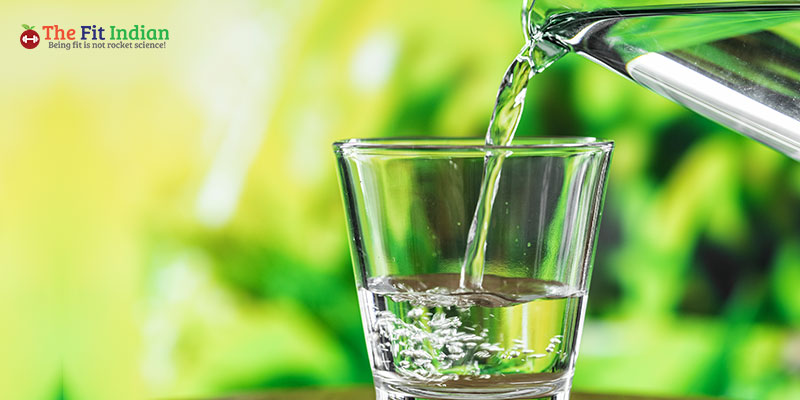
If our body consistently loses water, it can lead to certain complications and even lead to shock. So, the symptoms have to be rectified, and proper measures need to be applied immediately. If you want to know more about dehydration, then you can refer to this article.
What is Dehydration?
The prime reason for the occurrence of dehydration is when fluids in our body are not replaced. It has been estimated that our body needs 75% water to stay healthy, as we need to hold water in our cells, within our blood vessels and in between cells.
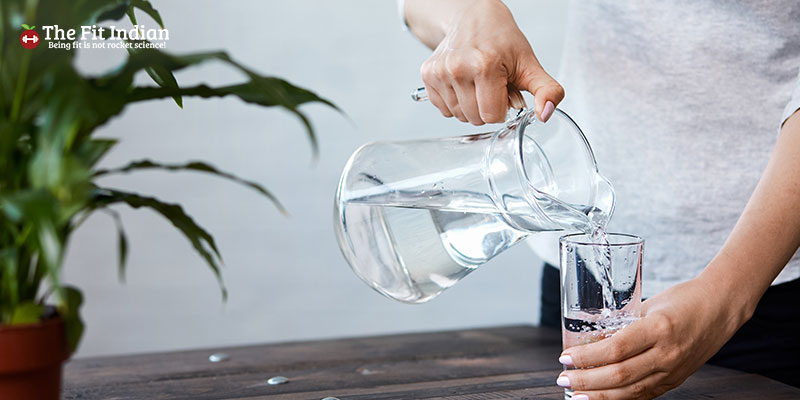
If the fluid in your body decreases and is not replaced, then symptoms such as sweating, urination, breathing trouble, and excretion develop. It is necessary to keep the water level in your body balanced; otherwise, in some cases, immediate medical attention is needed. To avoid this, you should start drinking an adequate amount of water every day.
How Much Water Should You Drink?
When you are at the risk of dehydration, then you need to consume fruits and vegetables which contain high water content such as watermelon, cucumber, spinach and others. Staying hydrated becomes a challenge every day. The amount of water we intake is not always enough to maintain proper body function, especially when the temperature rises.
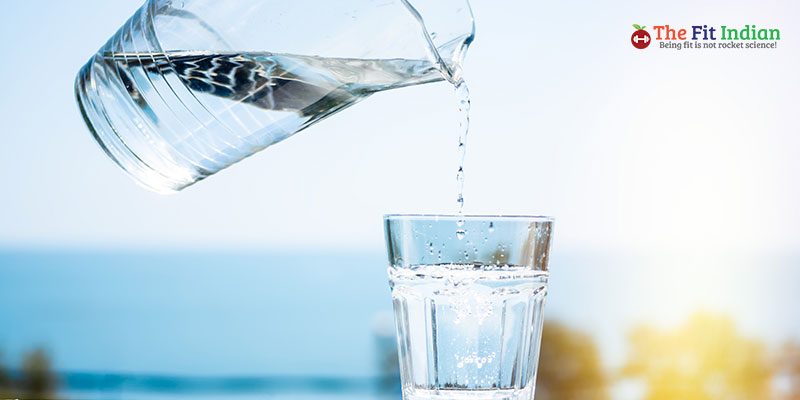
It is advisable to have 4-6 cups of water daily to keep yourself hydrated. If you are going through any specific health condition related to the kidney, liver and heart, there is a necessity to raise your water consumption. In some cases, doctors can even prescribe you medications such as :
- Non-steroidal anti-inflammatory drugs (NSAIDs)
- Opiate pain medications
- Antidepressants
Moreover, it is hard to specify or quantify how much water you should intake as the consumption depends explicitly on an individual and their requirements. So a doctor’s consultation is required to know how much water you should consume each day. Let’s learn more about the types and causes of dehydration.
What Are The Types And Causes Of Dehydration?
It is a fact that dehydration is regarded as a significant cause of morbidity and mortality among infants and children, and they are mostly affected by it because of their more considerable baseline fluid requirement due to:
- Increased metabolic rate
- High evaporative loss
- Low level of communication skill to convey thirst
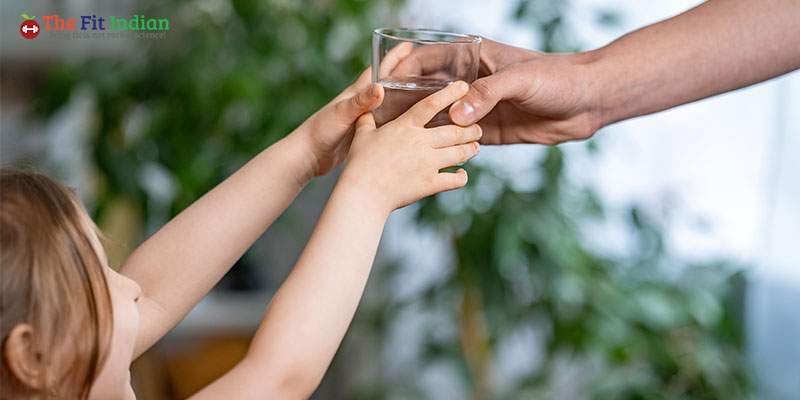
The World Health Organization has defined dehydration as a condition that results from excessive loss of body water. This condition can be further categorized into three types of dehydration.
Types of Dehydration
1. Mild Dehydration
It is most common among infants who continue to be breastfed because the fluid has high sugar content, which can develop into diarrhoea. So, it is advised to feed age-appropriate food to them, and in smaller portions and if possible, the affected children should be provided oral rehydration.
2. Moderate Dehydration
Individuals prone to morbidity suffer from this type of dehydration. They are recommended to administer 50 mL to 100 mL of oral rehydration solutions per kilogram per body weight to fill the estimated fluid deficit.
3. Severe Dehydration
This dehydration occurs to individuals undergoing severe dehydration and often encounter symptoms like lethargy, mental stress, hypotension, weak thread pulses, and others. In some cases, intravenous fluid is required, ranging from 20 mL or kg boluses of normal saline, as in this case, they are mainly detected with Hypoglycemia.
Read on to find out the causes of dehydration.
Causes
Dehydration occurs either from not consuming enough water or losing out too much water from your body. It is already an accepted fact that it is difficult to take enough fluid due to your busy schedule and lack of scope to drink enough fluids leads to severe complications in your body.

Thus, the other commonly known causes of dehydration are:
- Vomiting
Dehydration occurs after vomiting because it leads to loss of fluids, and then it becomes challenging to fill that water deficiency.
- Diarrhoea
Dehydration can occur to those who suffer from diarrhoea because our large intestines tend to retain water from food. Diarrhoea prevents it from happening, and as a result, the body starts excreting too much water, which leads to dehydration.
- Excessive Sweat
Hot and humid weather or tremendous physical activity leads to sweating and increased fluid loss. In addition to this, fever can also lead to sweating, vomiting, and diarrhoea, which can lead to dehydration.
- Diabetes
Diabetes leads to dehydration because high sugar levels often lead to excess urination and fluid loss. To cure diabetes, you can refer to this article.
- Frequent Urination
As mentioned above, it is another symptom of diabetes or excessive consumption of alcohol. Moreover, intake of medications such as the ones below could also lead to dehydration:
- Diuretics
- Blood pressure medication
- Antihistamines
- Antipsychotics
- Burns of tissues
During burns, blood vessels often get damaged, and this causes leakage of fluid into the surrounding tissues. Let’s take a look at the 10 signs and symptoms of dehydration.
10 Signs And Symptoms Of Dehydration
The first and the most noticeable sign or symptom of dehydration is thirst, and after that, darker urine colour and less urine production follow it. The occurrence of dehydration can be detected when there is a significant change in urine colour, and this can indicate whether you are hydrated or dehydrated.
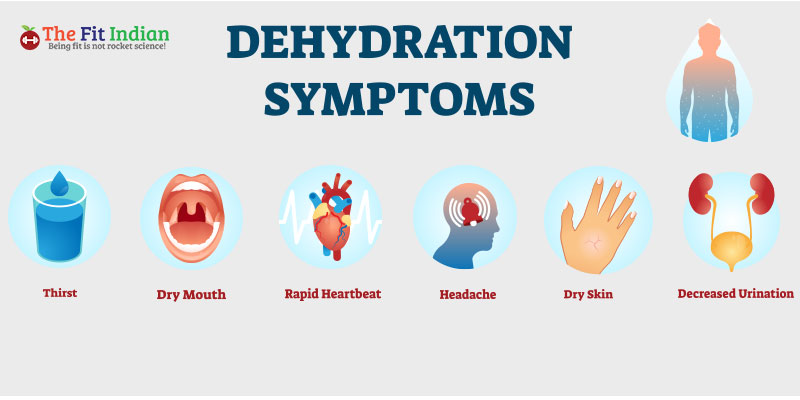
Some of the symptoms of dehydration are :
- Excessive thirst
- Headache
- Dry or sticky mouth
- Muscle cramps
- Dark-coloured urine
- Excessive dry skin
- Dizziness
- Faster heartbeat
- Rapid breathing
- Drowsiness
Thus, it is essential to drink plenty of water when you are ill or stay in any hot and humid area; otherwise, it can bring complexities to your health and even lead to shock or death. Let’s see how dehydration is diagnosed.
How Is Dehydration Diagnosed?
If you visit a doctor to check whether you are suffering from dehydration or not, they will look into your medical history and go through all your current symptoms before recommending any medical test. The doctor will then check your heartbeat rate and blood pressure level as a low blood pressure level, or rapid heartbeat often leads to dehydration.
Later on, the doctor may ask you to get a blood test to check the electrolyte level, which can be an alarming indication of fluid loss or limit the body’s level of creatinine, which will convey the kidney’s functioning.
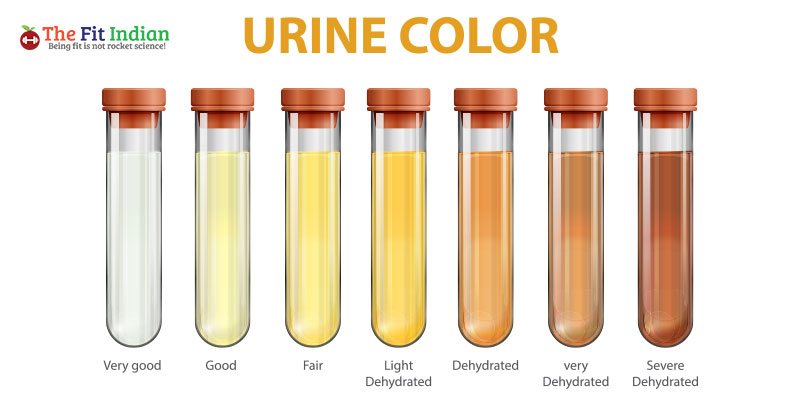
Some recommended laboratory tests for dehydration include :
- Basic Metabolic Panel (BMP)
- Urinalysis
- Complete Blood Count (CBC)
- Glucose
- Urine/Blood Osmolality
- Stool Culture
- Clostridium difficile C.diff toxin test
- O&P
Ways To Treat Dehydration
1. Rehydration
It is a process where fluid has been injected into one’s body through intravenous methods where a small IV tube is inserted in the arm or hand’s vein. This injected fluid is a consistency of water and electrolytes. Nowadays, it comes in the form of various rehydration drinks.
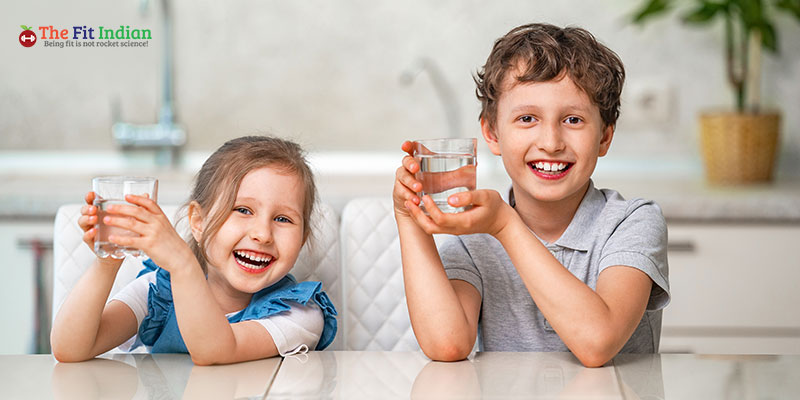
Home-made Solutions
Some old and traditional remedies still exist, which can cure your dehydration problem and you can easily make them at home with some easily available ingredients such as :
- ½ tsp of salt
- 6 tsp of sugar
- 1 litre of water
Method
Add salt and sugar into the water and mix it well, and this way you can make your own rehydration solution. While making the solution, you have to be well aware of the accurate measurement as excess salt and sugar can be dangerous to your health.
How Can I Prevent Dehydration?
- When you are ill or not well, it is always advisable to increase your fluid intake, especially, if you are vomiting or suffering from diarrhoea.
- If you are into physical activity, then you should always have plenty of fluid before you start exercising or in between your workout schedule.
- During summer days, you should try and wear cotton clothes or should practice dressing cool to sweat less.
- It is essential to avoid direct heat during the day time.
Things To Avoid
You should strictly avoid having too many aerated drinks, soda, caffeine and alcohol, as these drinks have the tendency to increase the problem of dehydration.
Take Away
Dehydration is a common problem, especially among people staying in extreme climatic zones, it becomes absolutely necessary to intake plenty of fluids to keep your body healthy, as any negligence can lead to severe health complications.
FAQ’S
1. What can happen if dehydration is left untreated?
If dehydration is left untreated, then there is a risk of causing serious fits (seizures), improper brain functioning or brain damages or death.
2. When should you be concerned about dehydration?
You should start worrying about dehydration when you notice some alarming signs like having dark yellow colored urine or less urine production, thirst, dizziness and other related symptoms.
3. How do you know if dehydration is serious?
You will come to know that dehydration is serious, and you have a medical emergency when you have to take intravenous fluids to continue normal body functions.
4. What are the 5 signs of dehydration?
The 5 most common signs of dehydration are dry mouth, less urination, muscle cramps, vomiting and dizziness.
5. What organs are affected by dehydration?
The organs which are mostly affected by dehydration are kidney, liver, lung, heart and brain. Brain cells are mostly affected by dehydration.
6. How long does it take to rehydrate?
It will take 45 minutes for those suffering from mild dehydration to rehydrate properly; to do so it would take 20.3 oz 600 ml of water.
7. How can I hydrate myself quickly?
The best way to hydrate quickly is to have beverages containing sugar and salt, fat or protein, as this can fill the lack of electrolyte.
8. What are the first signs of dehydration?
The first or introductory signs of dehydration are thirst, less urination, dizziness and dry skin.
9. How do you know if you are dehydrated enough to go to the hospital?
You need to visit the hospital, if you have high fever, feel sluggish, have a headache, fever and other symptoms associated with dehydration.
10. What drink will hydrate you the fastest?
The drink which can hydrate you the fastest are rehydrating beverages which are now widely available in the market.




Manoja Kalakanti